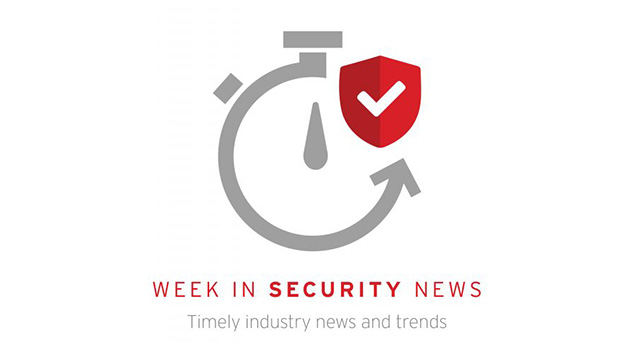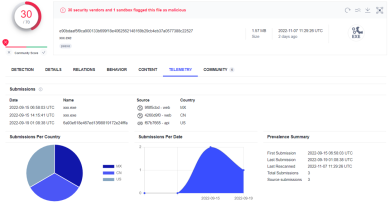This Week in Security News June 11, 2021 Director, Global Threat Communications


Welcome to our weekly roundup, where we share what you need to know about cybersecurity news and events that happened over the past few days. This week, read about Trend Micro’s forward look into the lasting impact of COVID-19 on security. Also, read expert opinions on how banning ransomware payments might create new crises.
Read on:
Looking Ahead: The Post-Pandemic Security Landscape
In this blog, take a look at Trend Micro’s insights and predictions on the lasting impact that Covid-19 will have on people’s way of life and what a post-pandemic “new normal” might look like. The coronavirus has already accelerated a second digital revolution not seen since the dot-com boom of the early 2000s. Likewise, it’s made criminal minds all the more motivated to innovate and digitize their attacks.
Banning Ransomware Payments Could Create New Crisis Situations
After the Colonial Pipeline ransomware attack and the JBS ransomware attack, government officials have been discussing banning ransom payments. While prohibiting ransomware payments might stop one crisis, it could create others for business leaders. In this article, both Ed Cabrera, chief cybersecurity officer and Greg Young, vice president of cybersecurity at Trend Micro, share more insights.
Microsoft Patches 6 Zero-Days Under Active Attack
This month, Microsoft deployed patches for 50 vulnerabilities, including six zero-days under active attack. Fifty is a relatively small number for Microsoft’s monthly security releases but this Patch Tuesday packs a punch. The CVEs that were addressed affect Microsoft Windows, Office, Edge browser, SharePoint Server, .NET Core and Visual Studio, Hyper-V, Visual Studio Code – Kubernetes Tools, Windows HTML Platform, and Windows Remote Desktop.
Modern Ransomware’s Double Extortion Tactics and How to Protect Enterprises Against Them
Ransomware actors have been a persistent threat for years but are now evolving. The wide adoption of advanced cybersecurity technologies and improved ransomware response processes has limited the success of traditional ransomware attacks. Upgraded security has forced these cybercriminals to evolve their strategies and has paved the way for modern ransomware attacks.
JBS Paid $11 Million to Resolve Ransomware Attack
JBS USA Holdings Inc. paid an $11 million ransom to cybercriminals who temporarily knocked out plants that process roughly one-fifth of the nation’s meat supply. The ransom payment, in bitcoin, was made to shield JBS meat plants from further disruption and to limit the potential impact on restaurants, grocery stores and farmers that rely on JBS.
June Patch Tuesday: Internet Explorer Finally Laid to Rest
The June 2021 Patch Tuesday cycle offers good news to both IT and website administrators. For the former, the number of bulletins issued this month is far lower than recent months. The latter group, however, has much better news to process this month: Internet Explorer support finally comes to an end as Internet Explorer is due to be retired officially on June 15.
3 things you might not know about modern ransomware and how Nefilim makes money
Ransomware attacks are now a team effort. Bad actors have modernized the business model to design attacks based on the specific company and a ransom fee based on how successful the target is, according to new research from Trend Micro. The company’s new report explains the modern ransomware attack and Nefilim, a type of malware that illustrates this evolution.
The U.S. EO on Ransomware: What Does it Mean? – Part 2
The White House is urging companies to do more to stem the tide of ransomware attacks now that they are starting to impact critical infrastructure and supply chains. As the White House suggests, convening leadership teams to address these threats is a must. Teams should start by conducting comprehensive vulnerability assessments of their mission critical operations and their cybersecurity teams that protect them and use these assessments to build comprehensive ransomware play books.
DOJ seizes $2.3 million in cryptocurrency payments from Colonial Pipeline ransomware attack
The Justice Department announced that with the pursuant to a seizure warrant it had retrieved $2.3 million in cryptocurrency payments that Colonial Pipeline made in the DarkSide ransomware attack. In May, Colonial paid its attackers $4.4 million worth of cryptocurrency in an incident that propelled ransomware into visibility it didn’t previously have in the U.S.
Meat Supply Giant JBS Suffers Cyberattack
One of the largest meat suppliers in the world, JBS was recently affected by a ransomware attack. With ransomware and various cyber-attacks continually targeting critical infrastructure and enterprises, the need for stronger and more robust cybersecurity is important more than ever. Executives and decision-makers must understand that cybersecurity is not just an IT issue but a major element that affects the entire organization and its operations.
What are your thoughts on banning ransomware payments? Share in the comments below or follow me on Twitter to continue the conversation: @JonLClay.
Read More HERE


